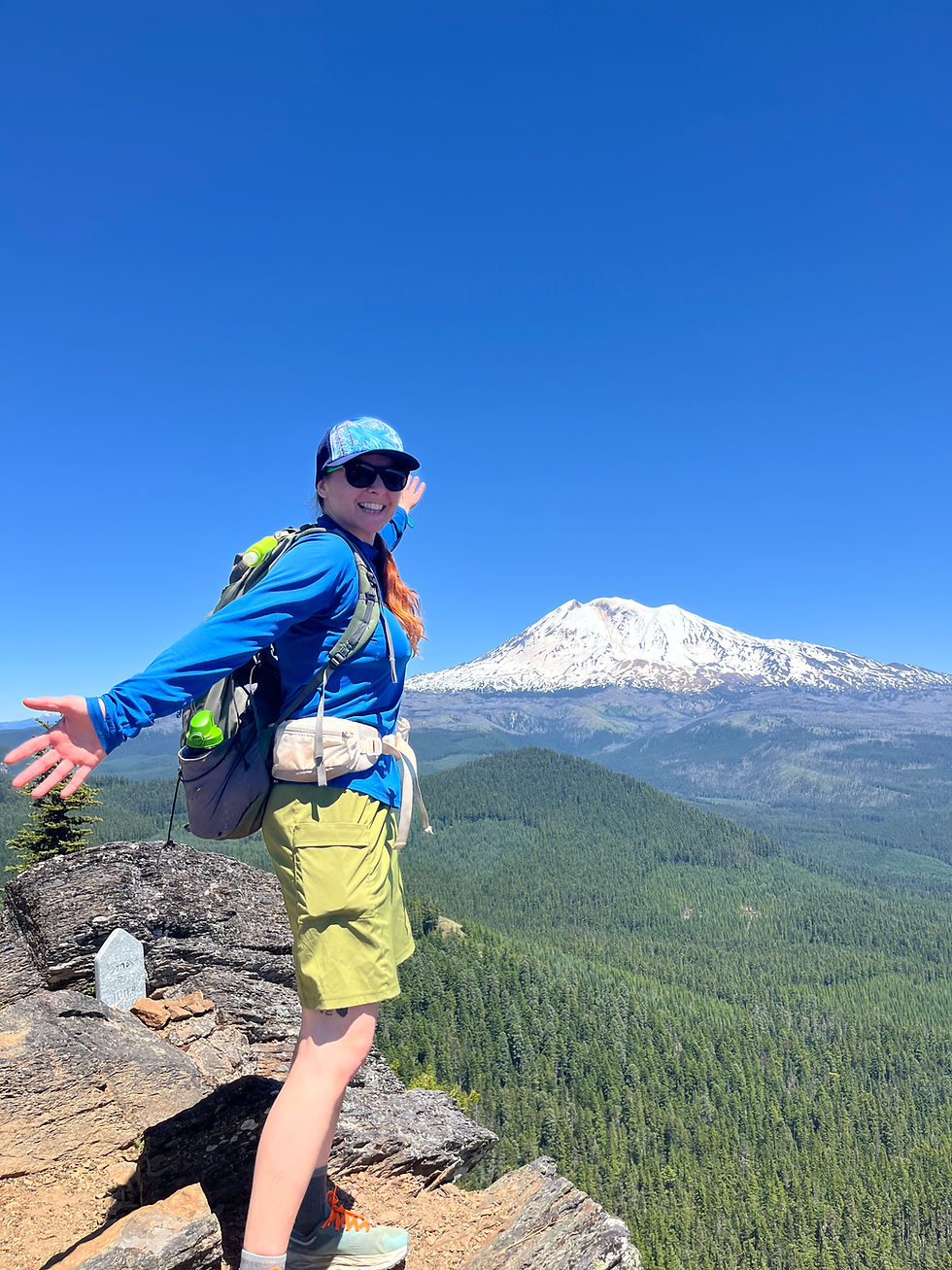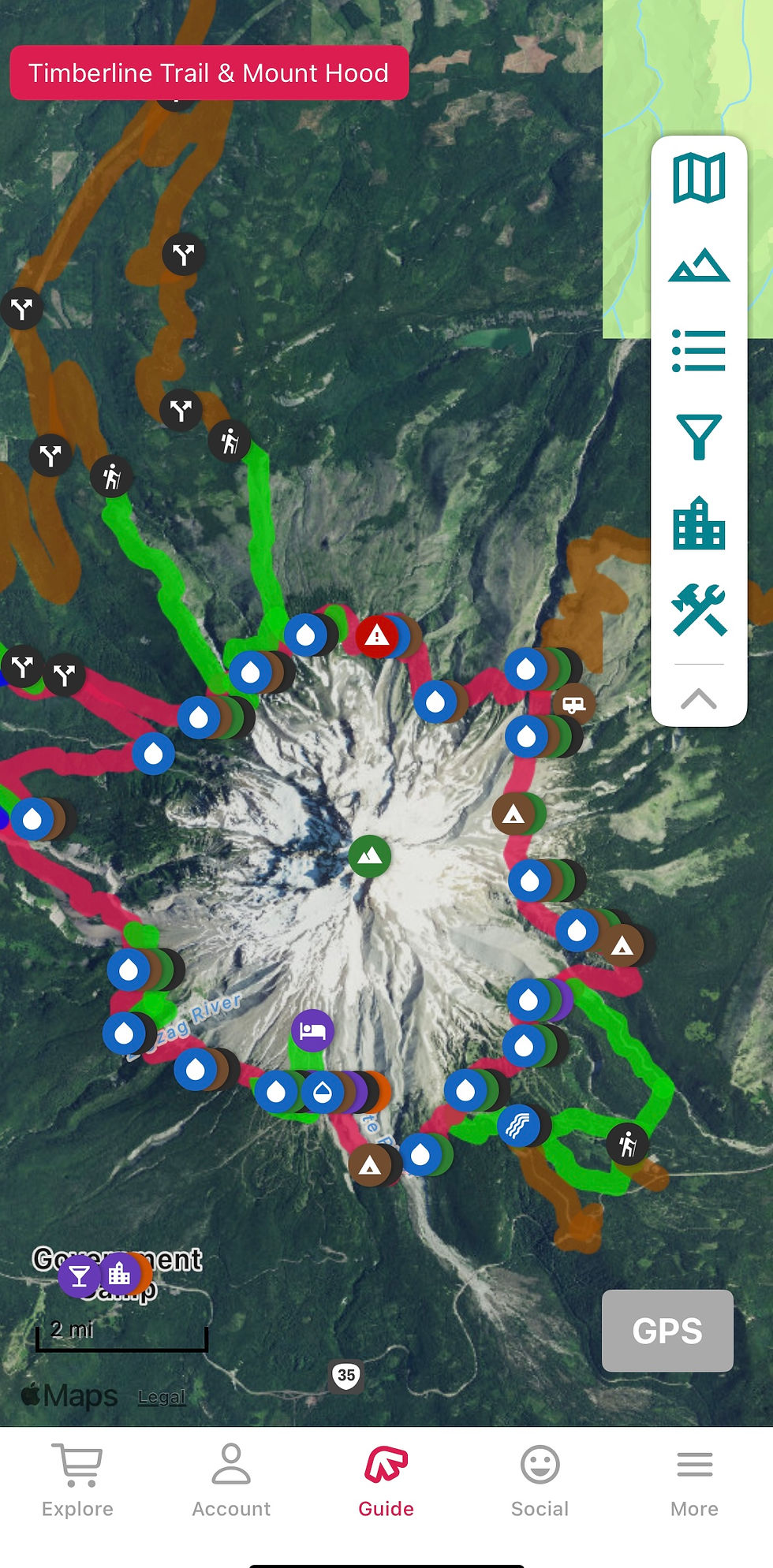How to Choose the Right Outdoor Guide: 8 Keys to a Fun & Safe Guided Experience
- tmschales
- Jul 1
- 4 min read
Hiring an outdoor guide can transform your trip from a good experience to a great one. Whether you're heading out on a multi-day backpacking adventure, tackling your first alpine climb, or learning to navigate rivers or snowfields, the right guide will not only keep you safe—they’ll also deepen your connection to your adventure location.
Here are the top things to consider when choosing an outdoor guide who’s worth their weight in trail mix:
1. Credentials & Certifications Matter
First things first: safety.
A well-qualified guide should have up-to-date medical and technical certifications, and at a minimum be licensed, insured, and permitted. A reputable guide service will have this info ready to share (and this is something you can google!). These "paperwork" items verify that someone else has checked your guides credentials, and offers a greater peace of mind that you are in safe hands.
Additional qualifications to look for:
Wilderness First Responder (WFR) or Wilderness EMT
CPR & First Aid
Activity-specific certifications, such as:
AMGA/IFMGA (American/International Mountain Guides Association) for climbing and mountaineering
AIARE for avalanche education and winter travel
ACA for canyoneering
Swiftwater Rescue for river guiding
.
2. Local Experience Counts
A great guide doesn’t just know how to read a map—they know how to read the landscape. Ask how long they’ve been guiding in the specific region you’re visiting. Local knowledge means they’re familiar with:
Seasonal trail conditions
Weather patterns
Regional hazards
Emergency evacuation routes
Wildlife behavior and local regulations
This kind of experience can make the difference between a seamless trip and a stressful one.
3. Prioritizes Safety and Risk Management
Safety isn’t just about having a first aid kit. It's about mindset, training, and preparation. A professional guide should:
Conduct thorough pre-trip briefings
Talk openly about potential hazards
Have clear emergency protocols
Demonstrate sound judgment under pressure
Don’t be afraid to ask about how they’ve handled past incidents—how a guide reacts in tough situations says a lot about their leadership and adapatility- which are essiential qualities in a wilderness setting. This is also where you ask about their backup plans- what happens if your guide falls off a cliff while you're on the trip? Sure, it sounds a bit morbid and extreme- but that's the thing about accidents, they happen. Knowing that your guide has contingency and emergency plans will help you relax and enjoy your outdoor experience. A solid backup plan will be much like a personal plan in your ten essentials- who knows we are out here? What's the procedure if something does happen?
4. Communication and Teaching Style
A good guide doesn’t just lead—they teach. Look for someone who’s:
Clear and confident in communication
Patient and inclusive of all skill levels
Willing to adapt instruction to your needs
Genuinely interested in helping you learn and grow
Whether you're a first-timer or seasoned adventurer, you should feel empowered—not intimidated or talked-down to.
5. Real Reviews (Not Just Star Ratings)
Online reviews can reveal a lot—but read between the lines. Instead of focusing only on ratings, look for patterns in how people describe the guide:
Were they prepared and professional?
Did they manage group dynamics well?
Were they calm in unexpected situations?
If you're booking through an agency, ask if you can speak with past clients or request the same guide someone else recommended.
6. Group Size and Ratio
Big groups may mean less attention, longer waits, and a less personal experience. Ask about:
Client-to-guide ratio
Maximum group size
Whether the trip is private or public
Smaller groups tend to be safer and offer more personalized guidance—especially for technical or high-risk activities.
7. Gear and Trip Logistics
Every guiding service does things a little differently. Before you commit, ask:
Is gear included or do you bring your own?
What’s the condition of the equipment?
Are food, permits, or transport included?
What’s the cancellation and refund policy?
Transparent pricing and clear expectations upfront are signs of a professional operation. Know that guiding is expensive- permits, license, insurance all add up to some major overhead; having an all-inclusive trip will be more expensive and worth it for the logistics to be stress free. Many guiding operations are small businesses, and a last minute cancellation can significantly alter their financial ability to put on the trip; so it isn't uncommon to have a strict cancellation policy and may be beneficial to carry trip insurance.
8. Personality & Vibe
This might seem secondary, but it's actually huge. You’ll be spending hours—maybe days—together. A guide should be:
Respectful and friendly
Calm under pressure
A good storyteller and listener
Able to read group energy and needs
If possible, chat with your guide in advance. You want someone you feel comfortable with—someone you'd trust in both a thunderstorm and a trailhead taco break. A guide's style can also affect your enjoyment. Know what you're looking for and communicate that with your guide- for example, do you want to learn how to filter your own water and repair your tent? Or are you looking more for a relaxing, glamping-level experience where you have nothing to think about other than walking? Be sure to communicate your wants and needs for your trip, and that your guide will be able to accommodate your needs.

Final Thoughts
Hiring a guide is an investment in your safety, learning, and overall experience. Do your homework, ask questions, and trust your gut. The right guide doesn’t just show you the way—they make the journey unforgettable.







Commentaires